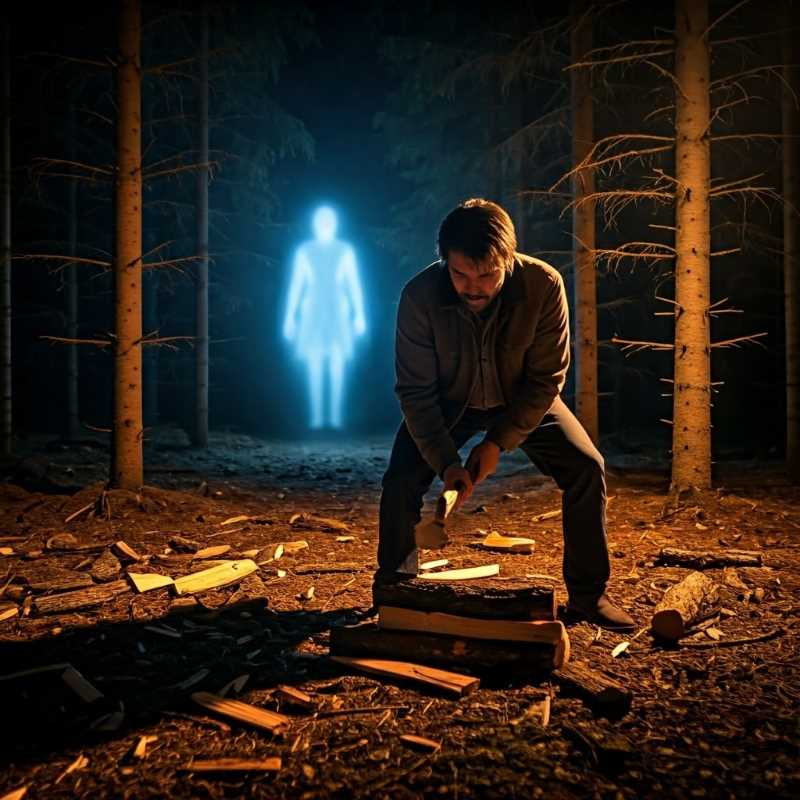A Supernatural Experience in the Cold, Dark Woods
A woodcutter encounters a ghostly woman in white while working late one night. The woman, seemingly harmless, approaches him despite his dogs' fear and vanishes mysteriously when he reaches the fence.

Winter. The time when the air is crisp, the sky is blue, and your breath billows out like steam from a kettle. It’s also the time when everyone suddenly feels like sharing ghost stories. It’s odd, isn't it? You’d think these tales would fit better in the sticky heat of summer when the nights are long, dark, and endless, but no. Instead, it’s when the frost has set in, when you can’t feel your fingers, that people feel the need to remind you of the specters that apparently roam the hills. You can practically hear them whispering through the icy wind.
Now, I don’t know about you, but I’ve never much cared for ghost stories. They’re like Brussels sprouts. People insist you’ll enjoy them because they’ve added a bit of butter or some outlandish garnish, but in the end, they’re still Brussels sprouts. Tasteless, unpleasant, and you’re always left wondering why you bothered. But, as it turns out, the people in this particular story had no such luxury. Their ghostly encounter didn’t come with the option of politely declining and asking for something else. No, this one just showed up, all dressed in white, and absolutely refused to be ignored.




